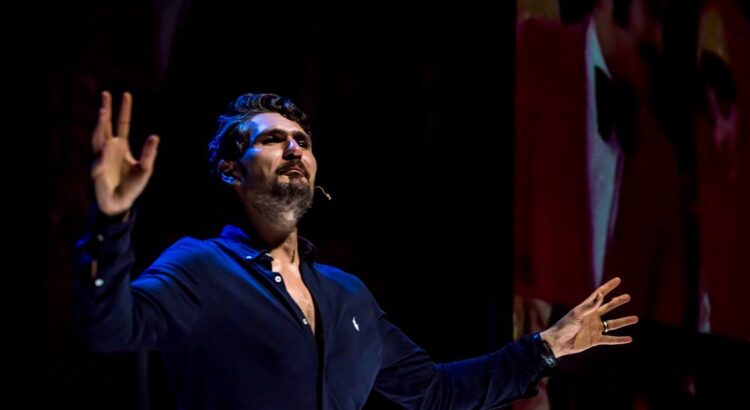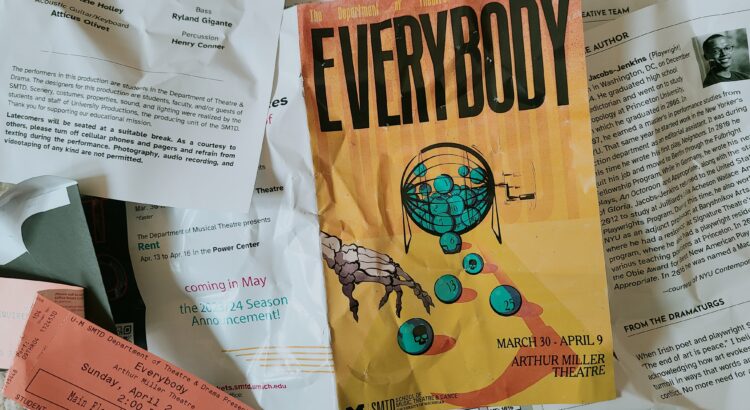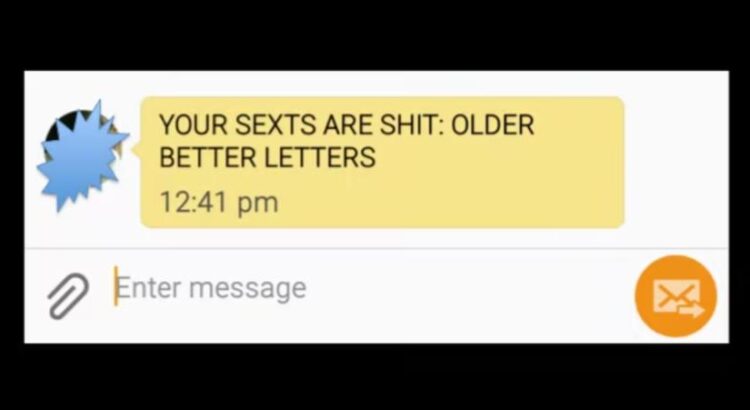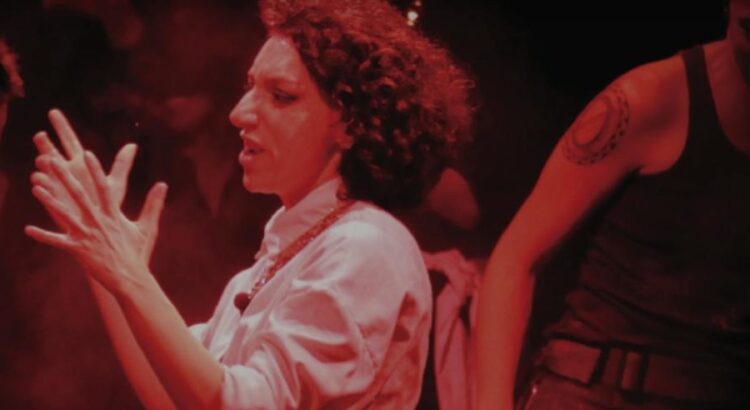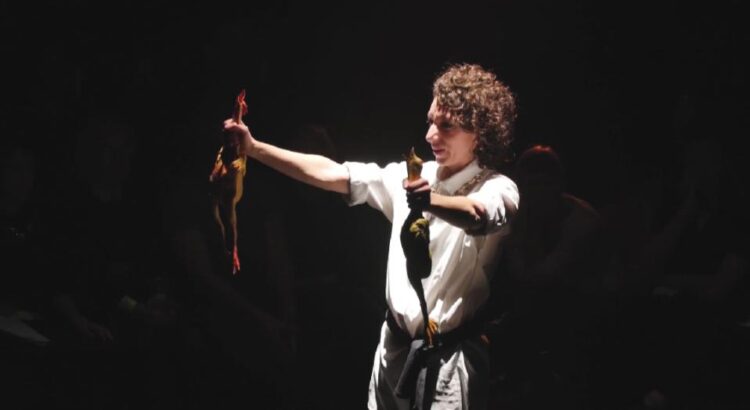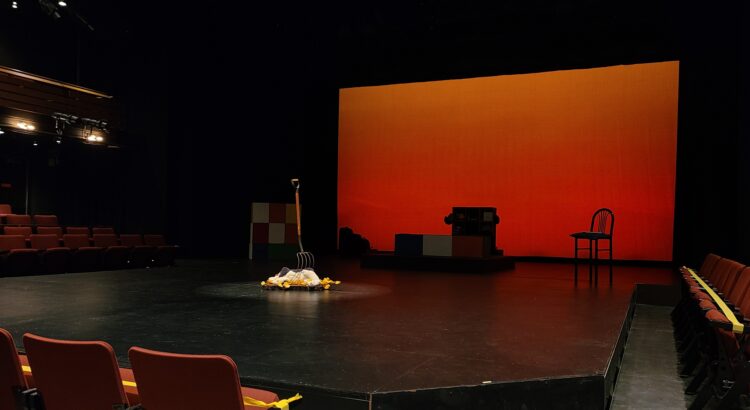7:30pm • Wednesday, Nov. 15, 2023 • Arthur Miller Theater
Things Hidden Since the Foundation of the World, a multimedia, experimental theater performance which I experienced last Wednesday, told the true story of iconic Iranian pop star Fereydoun Farrokhzad’s unsolved murder. At the same time, many stories collided to provide context for and complicate the idea of “solving” a murder mystery. The performance challenged the idea of “knowing” itself, contending with the maxim: “The more you know, the more you understand.”
This performance was the third in a trilogy written by the Javaad Alipoor Company, named for the show’s co-writer and artistic director (as well as performer), Javaad Alipoor, a British-Iranian artist. At the beginning of the performance, Alipoor spoke to the audience and described himself as a bridge between the audience and the reality of the Iranian diaspora, one which would help us better “understand” a reality potentially foreign to ourselves. Alipoor wove his story and his heritage into the fabric of the performance, winding it around that of Farrokhzad. He also brought in another thread through his collaboration with Raam Emami, better known as King Raam, an Iranian/Canadian musician whose podcast, Masty o Rasty, has a cult following among Persian-speakers and has been streamed more than 20 million times. The show used a combination of media, including spoken word, video, and true-crime podcast to bring the three men’s stories together.
As I referenced earlier, Alipoor prefaced the show by speaking on our constant desire to know things, in order to understand the world better, and how modern technologies like Wikipedia can serve that desire. For a moment of audience participation, Alipoor asked us all to get out our phones and use Wikipedia to look up a word shouted out by the audience: “cuscus,” a kind of Australian possum. He had us skim the page and click on the first link that looked interesting, and continue doing so, for a minute. He then used this activity to challenge the idea that reading anything on the Internet, or gaining any kind of knowledge, will necessarily allow us to understand another reality. By framing the performance in this way, Alipoor challenged the proposition that by watching a multimedia performance about the murder of Fereydoun Farrokhzad, we would somehow “understand” his murder, or the broader set of stories which form the Iranian diaspora.
I found this performance completely fascinating, and it made me think more deeply about how I consume and use information in my daily life. For me, it highlighted the importance of cultural humility: a balance between awareness and appreciation of other ways of being, and the knowledge that we can never truly understand another’s experiences. In the absence of understanding, empathy is essential. Things Hidden Since the Foundation of the World pointed out that even in our highly digital, information-saturated lives, there are some who have been made invisible to us, and it is our obligation to be aware of (and assist in) their struggles.

